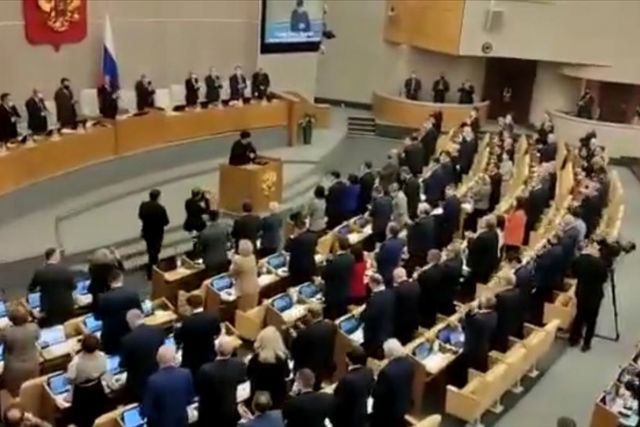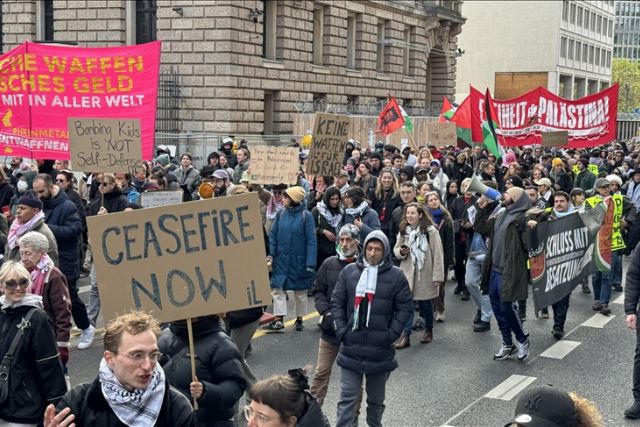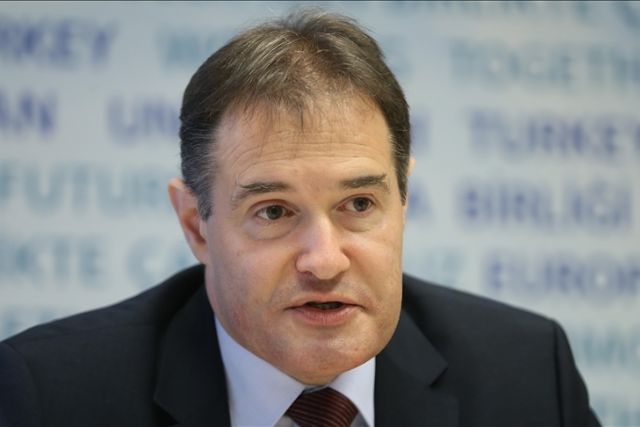US in its ‘weakest position,’ Raisi tells Russia’s State Duma
Iranian president addresses Russian parliament on his 1st visit to Moscow, receiving applause

TEHRAN
Iran's President Ebrahim Raisi, addressing the lower house of the Russian parliament on Thursday, said the “strategy of domination” had failed and the US was “in its weakest position.”
Raisi, who arrived in Moscow on Wednesday on a high-profile visit, used his address to the State Duma in lashing out at the US and hailing the growing proximity between Tehran and Moscow.
He received a standing ovation and a round of applause from Russian lawmakers after his speech, which many see as an invitation to Russia to form a regional alliance against the US.
He said the “power of independent nations” was experiencing a “historic growth,” while accusing the US and its allies of seeking to “weaken independent governments from within” through “economic sanctions, destabilization, promotion of insecurity, and false narratives.”
Describing the US-led coalition as an “evil alliance,” the Iranian president said there are now “complex plans” to send terrorists on “new missions” from the Caucasus to Central Asia, adding that a “pure Islamic thought” can prevent the growth of extremism and terrorism.
Raisi, elected to office last July, noted that the US “military occupation” in Iraq and Afghanistan was ending due to “resistance of nations,” which he said serves “independence of countries.”
He also slammed NATO, accusing it of “infiltrating various geographical areas with new coverings that threaten the common interests of independent states.”
“Promoting pro-Western governments and confronting independent democracies based on national identities and traditions is part of NATO's cultural projects that reflect the hypocrisy of this diminishing pattern of behavior,” Raisi told the packed hall.
He said the policy of sanctioning nations was a “common form of new domination,” adding that countering it requires the “cooperation of independent states and a collective response.”
“Otherwise, sanctions will affect all countries, even US allies, under various pretexts,” Raisi noted.
Defending his country's nuclear program, the recently-elected Iranian president said Washington claims that sanctions are due to Iran's nuclear activities, but the country's activities are “legal and under the constant supervision of the International Atomic Energy Agency.”
Commenting on the ongoing efforts in Vienna between Iran and the world powers to revive the 2015 nuclear deal, Iran's president said his country wants “nothing less than our rights.”
“The Islamic Republic of Iran is serious about reaching an agreement if the other parties are serious about lifting the sanctions effectively and operationally,” he asserted.
Extending an olive branch to the world countries, Raisi said his government's “policy of maximum interaction with independent governments” will continue “regardless of the developments in the international environment.”
He said Iran had extensive economic potential, especially in areas of energy, trade, agriculture, industry, and technology, which he said can pave the way for bilateral or multilateral interaction with different countries, while emphasizing his country's growing economic ties with Russia.
“The privileged geographical location of Iran, especially the North-South corridor, can make trade from India to Russia and Europe less expensive and more prosperous,” he said.
Raisi further extended Iran's support to Russia's initiative of holding a meeting of the parliament speakers of Iran, Russia, Turkiye, Pakistan, and China in the “fight against terrorism.”
On Wednesday, Raisi held extensive talks with his Russian counterpart Vladimir Putin, in which he said there were “no restrictions” on the development of relations with Russia.
He described the maximum interaction with neighbors as one of his government's foreign policy priorities, while noting that strengthening of bilateral cooperation between Iran and Russia was likely to “boost the economies of the two countries and increase regional and global security."
Raisi is accompanied by senior members of his Cabinet, including the foreign minister, economy minister, and oil minister, on this high-profile, two-day visit to Russia.





